What Are Seed Oils and Should You Avoid Them?

What Are Seed Oils and Should You Avoid Them?
Oct 9, 2024 | By JOI team
If you’ve taken a closer look at the ingredients in your favorite snacks, carton of oat milk or restaurant meals lately, you’ve likely come across various types of vegetable oils.
While oils like avocado and MCT oil are gaining popularity for their health benefits, seed oils—like soybean, canola, and sunflower oil—are found in most processed foods. But with rising concerns about their impact on health, should you be avoiding seed oils?
Let’s dive into what seed oils are, how they’re made, and why alternatives like avocado and MCT oils may be better for your health.
What Are Seed Oils?
Seed oils, a subset of vegetable oils, are extracted from the seeds of crops like soy, corn, sunflower, and rapeseed (canola). These oils are typically high in omega-6 fatty acids, particularly linoleic acid. While our bodies need some omega-6 fatty acids, excess intake can lead to imbalances and contribute to inflammation and chronic diseases, like heart disease and diabetes.
Common seed oils include:
- Soybean oil
- Corn oil
- Sunflower oil
- Canola oil
- Cottonseed oil
- Grapeseed oil
Seed oils are widely used due to their low cost and stability, making them a go-to ingredient for fast food chains, packaged snacks, and even baby formula. However, their high linoleic acid content and processing methods raise concerns for long-term health.
Health Risks of Seed Oils
Research has connected the rise in seed oil consumption to an increase in chronic diseases. Since the 1900s, global seed oil production has surged, coinciding with a dramatic increase in heart disease, diabetes, and other inflammatory conditions.
Here are some reasons why seed oils could be problematic:
1. Omega-6 Imbalance
The typical Western diet is now overloaded with omega-6 fatty acids from seed oils. Historically, humans consumed omega-6 and omega-3 fats in a balanced ratio of about 1:1. Today, that ratio is estimated to be as high as 16:1. This imbalance is detrimental to health. It promotes inflammation and may contribute to conditions like obesity, arthritis, and cardiovascular disease.
2. Oxidation and Inflammation
Seed oils are highly susceptible to oxidation, especially when exposed to heat during cooking or processing. Oxidized oils can lead to increased free radicals, which damage cells and promote inflammation. Chronic inflammation is linked to several diseases, including cancer, diabetes, and Alzheimer's.
3. Processing Dangers
Seed oils undergo extensive processing to extract oil from seeds. This involves high heat and chemical solvents like hexane, which not only degrades the oil’s nutritional quality but can also leave behind harmful residues. Additionally, trans fats, which are byproducts of this processing, are linked to higher risks of heart disease.

The Benefits of Avocado and MCT Oils
In contrast to seed oils, avocado oil and MCT oil offer a wealth of health benefits and are far less processed. These oils are extracted from fruits and coconut, making them a more natural, nutrient-dense option for your diet.
1. Avocado Oil
Avocado oil is extracted from the fruit of the avocado, not from seeds, which means it’s naturally low in omega-6 fats and rich in heart-healthy monounsaturated fats. Studies show that monounsaturated fats, like those in avocado oil, can help reduce bad cholesterol levels (LDL) and lower the risk of heart disease.
Additionally, avocado oil is rich in antioxidants, particularly vitamin E, which helps protect cells from oxidative damage. It’s also high in lutein, a nutrient important for eye health, potentially reducing the risk of age-related macular degeneration.
2. MCT Oil
MCT oil, derived primarily from coconut oil, contains medium-chain triglycerides, which are easily absorbed by the body and quickly used as energy. MCTs have been shown to support weight management, improve cognitive function, and promote a healthy gut. Because MCT oil is quickly metabolized, it’s less likely to be stored as fat compared to long-chain fatty acids found in other oils.
MCT oil also supports ketosis, making it a favorite among those following a ketogenic or low-carb diet. Unlike seed oils, MCT oil is stable at high temperatures, making it a great choice for cooking.
How to Reduce Seed Oils in Your Diet
Given the potential risks associated with seed oils, it’s wise to limit your intake. Here are some simple ways to swap out seed oils for healthier fats:
1. Cook with avocado or coconut oil: These oils have higher smoke points, making them ideal for cooking without the risk of harmful oxidation.
2. Choose whole-food-based snacks: Instead of packaged snacks laden with seed oils, opt for whole foods like nuts, seeds, and fruit.
3. Read labels: Seed oils are often hidden in foods. Look for products that use healthier oils, like olive oil, MCT or avocado oil (such as JOI's oat milk creamers), or none at all (such as JOI single-ingredient instant oat milk), instead.
Conclusion
Seed oils are ubiquitous in the modern diet, but research shows they may contribute to chronic diseases like heart disease, diabetes, and obesity due to their high omega-6 content and susceptibility to oxidation.
To support better health, consider replacing seed oils with alternatives like avocado oil and MCT oil. These non-seed oils offer a range of benefits, from heart health to cognitive support, and can be easily incorporated into your everyday meals.
Making small changes, like cooking with avocado oil or choosing JOI creamer in your morning coffee, can make a big difference in reducing inflammation and supporting overall wellness.








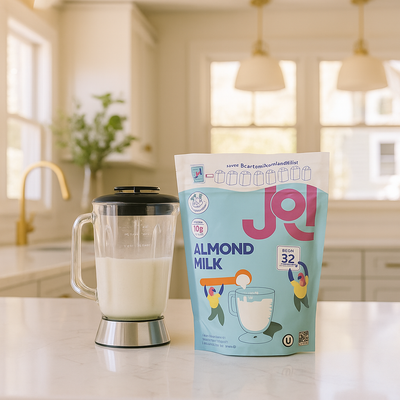
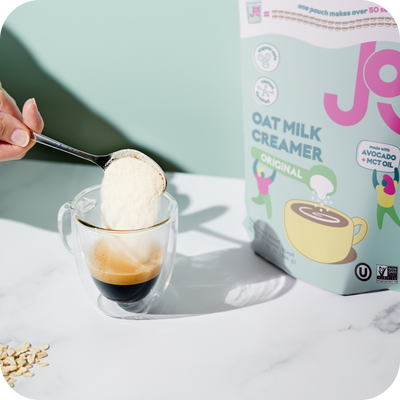
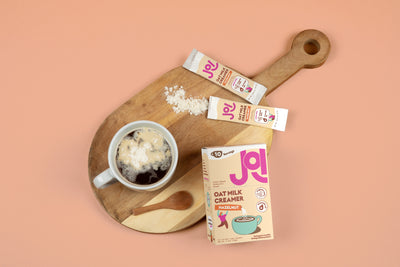
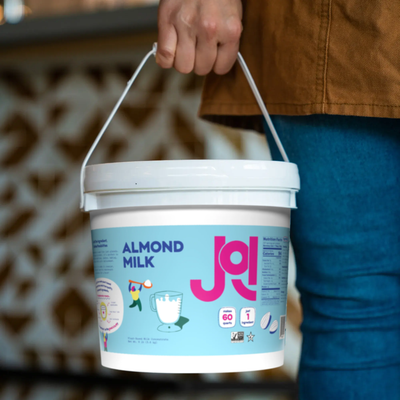
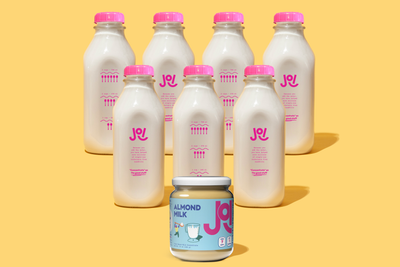
 CHECKOUT
CHECKOUT